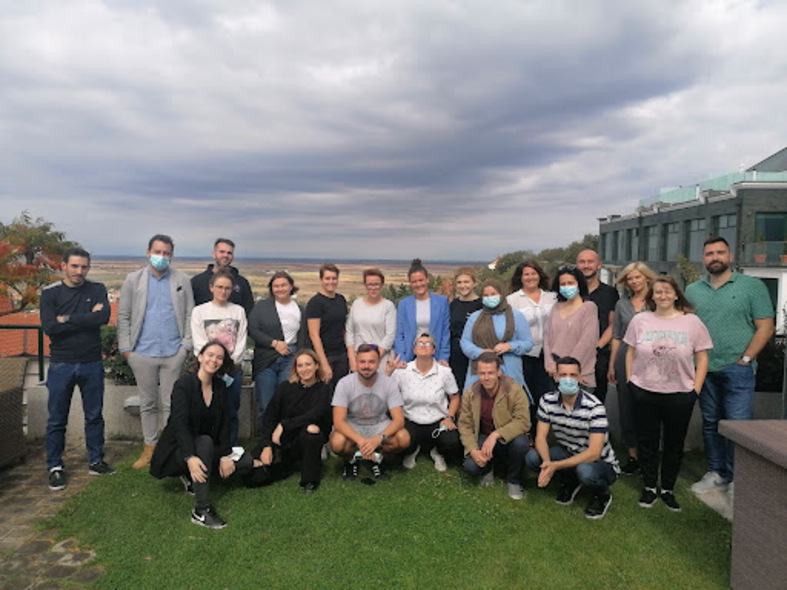Zagreb, October 12th, 2021
Youth Initiative for Human Rights Croatia staff, Branka Vierda, Dorotea Strelec, and Ana Gvozdić, attended a transitional justice training organized by the Youth Initiative for Human Rights Serbia in Vršac in the period of September 27 – 29, with the support of the Government of the United Kingdom and the United Nations Development Program (UNDP).
Twenty transitional justice activists from Croatia, Serbia, Kosovo, Bosnia and Herzegovina, and Montenegro attended the training. Apart from the representatives of the Youth Initiatives for Human Rights from Serbia, Bosnia and Herzegovina, and Kosovo, this training was an opportunity to learn together with the representatives of the following civil society organizations: Humanitarian Law Center Kosovo, Human Rights Action Montenegro, the Center for Peace, Nonviolence, and Human Rights Croatia, as well as the Forgotten Children of War, Srebrenica Memorial Center, and the Post-Conflict Research Center from Bosnia and Herzegovina.
During this three-day training, we acquired relevant knowledge and skills. Marijana Toma and Ivan Jovanović (UNDP) led an introductory session about the current trends in transitional justice. Luka Božović (Plum Consulting) led a session on advocacy, while Bojan Elek (Belgrade Center for Security Policy) taught us about public policy. Marija Pantelić, an independent consultant, worked with us on the topics of project management and the project cycle.
By the end of the training, we collectively developed the following statement:
“We gathered in Vršac, as tensions in the region are growing, as warmongering speech is present in public space more than ever. New challenges require renewed energy and regional connections of peace activists, which is exactly what we worked on in Vršac. We have met new people, strengthened old partnerships, learned new things and reinforced our commitment for regional cooperation in dealing with the past efforts. As extreme nationalisms grow in strength and presence in the region, we must be more vocal, more connected and more consistent than ever in order to fulfill our goals. We want to preserve peace, achieve meaningful reconciliation which is founded in justice for victims, truth, and accountability of the perpetrators.”
